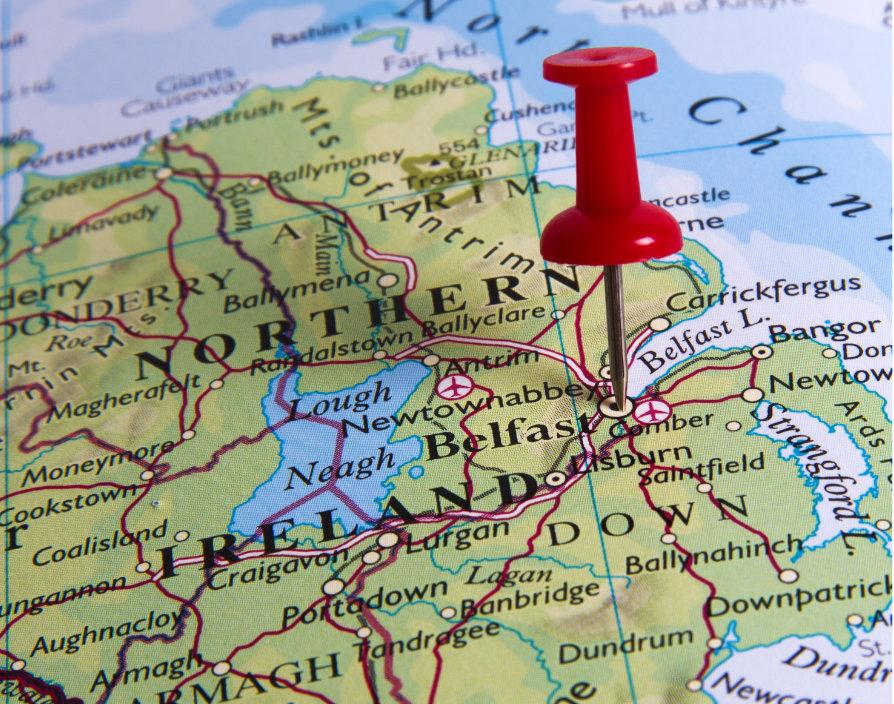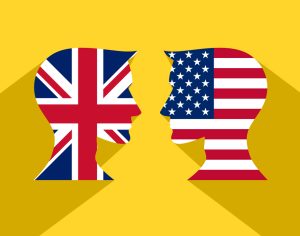Customs’ expert Arne Mielken attempts to simplify the complicated rules of engagement involving trade travelling between Great Britain and Northern Ireland.
The Withdrawal Agreement, signed by the European Union (EU) and UK Government, came about because residents of England, Scotland, Wales and Northern Ireland voted for Brexit. And this agreement includes legislation relating to the Ireland/Northern Ireland Protocol.
This Protocol was signed on Good Friday, April 10th 1998, and is often referred to as the Belfast Agreement. The main goal of this international treaty was to prevent a hard customs’ border between Northern Ireland and the Republic of Ireland. But, with the Withdrawal Agreement added to the mix, this means a trade barrier between Great Britain and Northern Ireland now exists, even though both regions are actually within the UK.
The Protocol celebrates its 25th anniversary this month, but has been a political issue since the UK voted to leave the EU in June 2016. And because there is now a customs border between Great Britain and Northern Ireland (NI), it makes doing business even more complicated.
The Windsor Framework determines how goods move between NI and the UK. The agreement includes ‘green lanes’ and ‘red lanes.’ A ‘green lane’ can be utilised to send goods from Great Britain (GB) to NI, but not onwards to the EU. But much depends on how each individual product is classified for customs purposes.
Green lanes are for businesses that can be trusted: Those who run businesses in the UK, and are financially stable, must register with the correct authorities. They must also keep a record of everything they send to NI. The green lane will assist commodities that don’t pose a risk, such as retail, health or animal feed. Furthermore, they must all be going to NI and nowhere else.
Package delivery services and online stores usually benefit. And the Verified Trader Program can be used for B2B shipments. As for B2C, shipments from the UK to NI will find it easier to clear customs if an approved carrier transports the goods.
Goods leaving NI for other parts of the UK no longer require an export declaration to distinguish them from goods that could also be exported to the EU. This reduces the amount of information needed to be disclosed, and may just contain data such as description, weight and value, along with shipment details. All of this information is on commercial paperwork anyway, so there is no need to repeat it.
UK shipments to the island of Ireland, or other EU countries, must follow all EU customs’ rules. This is done by using the Union Customs Code or the red lane. Customs’ forms must be filled out and relevant duties paid. Parcels are another issue, when sending packages from GB to NI. Traders that are known and trusted can be used to send or receive goods more quickly.
Members of the public, such as a grandmother sending a birthday present to her grandson, wouldn’t have to follow any rules. And it is always easier when a consumer orders a product online. And businesses are always advised to use authorised carriers.
But what about the EU’s Single Market: Checks and balances are built into this system for the benefit of the EU. For example, the EU has real-time access to the UK’s IT customs’ databases, allowing them to do risk assessments.They can monitor the Trusted Trader and Authorised Carrier schemes, and even have the power to call a halt if an issue arises.
The Trusted Trader Program will start in September of this year. The EU will have access to IT systems, while British authorities must approve those businesses they ‘trust.’ Beginning in September 2024, only authorised carriers will be used for B2C shipping. As of July 1st, 2025, products sold in NI stores must say ‘not for EU.’
In general, rules regarding the import of food are complicated. But under new plans, goods that remain in NI would have to meet UK standards for reasons of consumer protection and public health. The aim is to make certain that NI has identical food shelves to that of GB.
One of the key changes for food retailers is that every lorry would need only one veterinary health certificate for mixed loads. This reduces the amount of paperwork and bureaucracy. The EU is also willing to cut the number of identity checks at the border to 5%. Physical checks will be based on risk and product labels must stipulate ‘Not for EU’.
Under these new plans, NI will be able to receive raw sausages and meat that has been chilled in the UK. This is unusual because the EU doesn’t allow foreign countries to send them chilled meat. NI is becoming healthier thanks to the Windsor Framework.
Medicine is another topic of discussion between the EU and UK. Regarding the EU internal market, there were more restrictions on British goods. But the Windsor Framework says that NI will be allowed to sell medicines that are legal in the UK. Two benefits being: First, new medicine must be approved according to UK rules. Second, prescription drugs don’t need to have EU safety features.
To protect the EU Internal Market, they have imposed a set of safeguards, such as putting ‘UK only’ labels on medicines. And they can track them too, to make certain rules are being adhered to. If any risk emerges, the EU has the right to put these new rules on hold. That said, the NI Protocol has created problems that have nothing to do with trade or customs.
As for the Windsor Agreement, the EU wants to make certain that subsidies don’t give the UK an unfair advantage. Article 10 of the Protocol says that state aid, which affects trade between NI and EU, must follow EU rules.
Typically, NI has to pay UK sales tax. But article eight of the NI Agreement says goods are subject to European VAT law. Unlike other parts of the UK, NI remains part of the EU’s Internal Single Market. Therefore, EU VAT laws still apply. Because of this, VAT rules are different for goods depending on whether they are sold in Birmingham or Belfast.
If the UK stipulates that some goods will have a zero VAT rating, this may not apply to Belfast. Under new proposals, the UK could lower VAT rates to below those set in the EU, providing these goods could not physically enter the EU single market.
The UK’s VAT exemption scheme for small and medium size enterprises (SMEs) can be used for both goods and services, as long as they meet the EU’s minimum size requirement for an SME.
Since NI is part of the EU’s internal market, the European Court of Justice has the final say on EU law. And this will not change. However, the EU and UK have agreed to consult each other should any problems arise regarding the Protocol, and its administration within the mechanisms of the Withdrawal Agreement. By agreeing to talk, they will do everything to find a solution.
Whatever happens going forward, regarding the Protocol and Withdrawal Agreement, the situation remains fluid, and will continue to evolve in the future.
Share via:








































